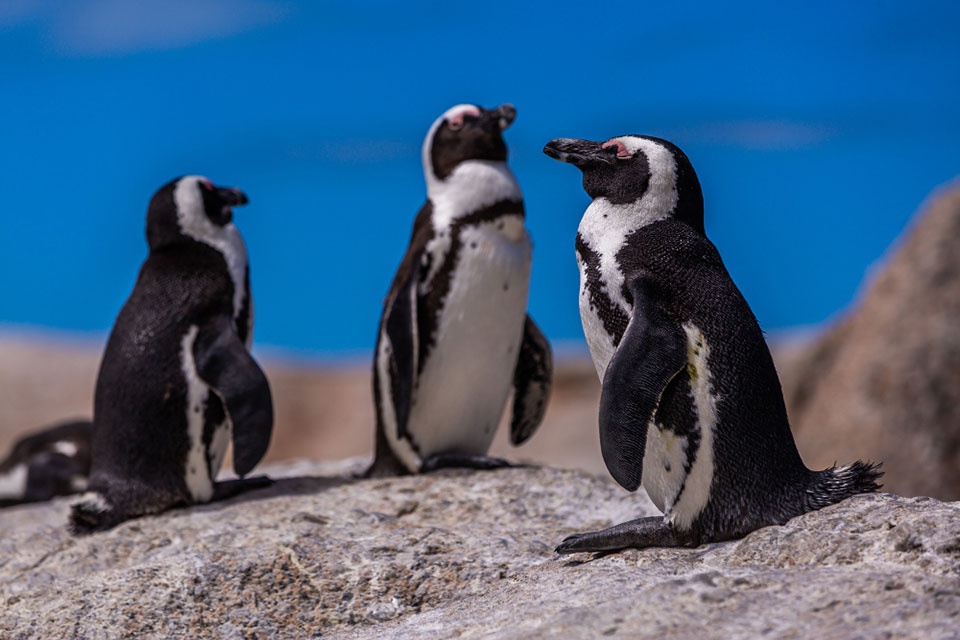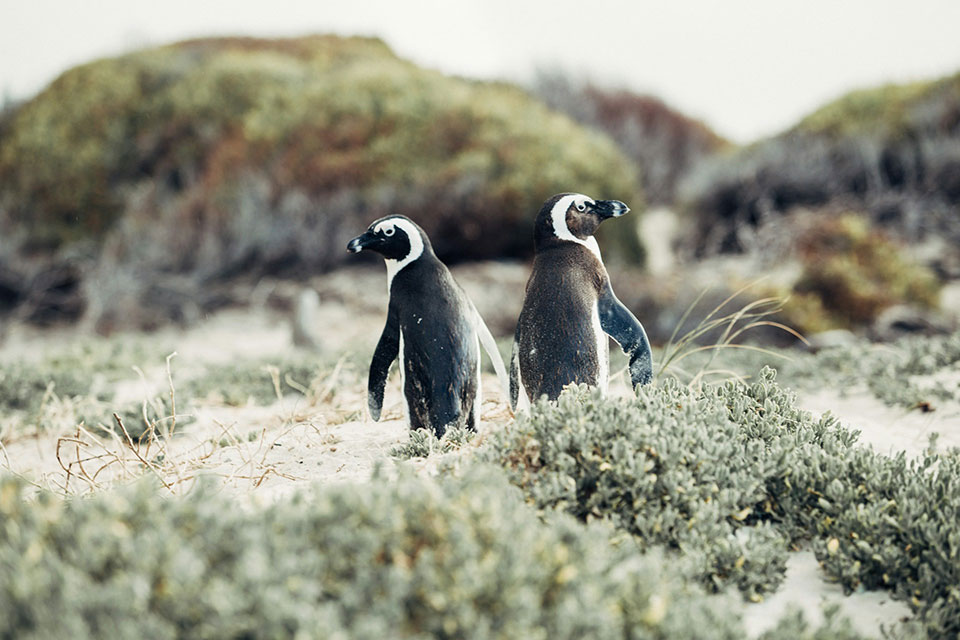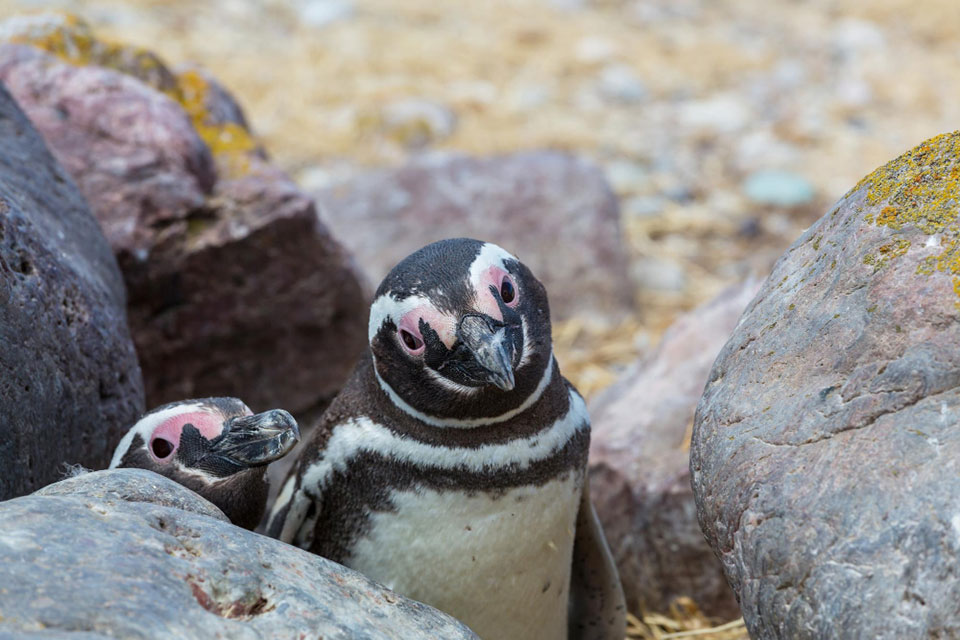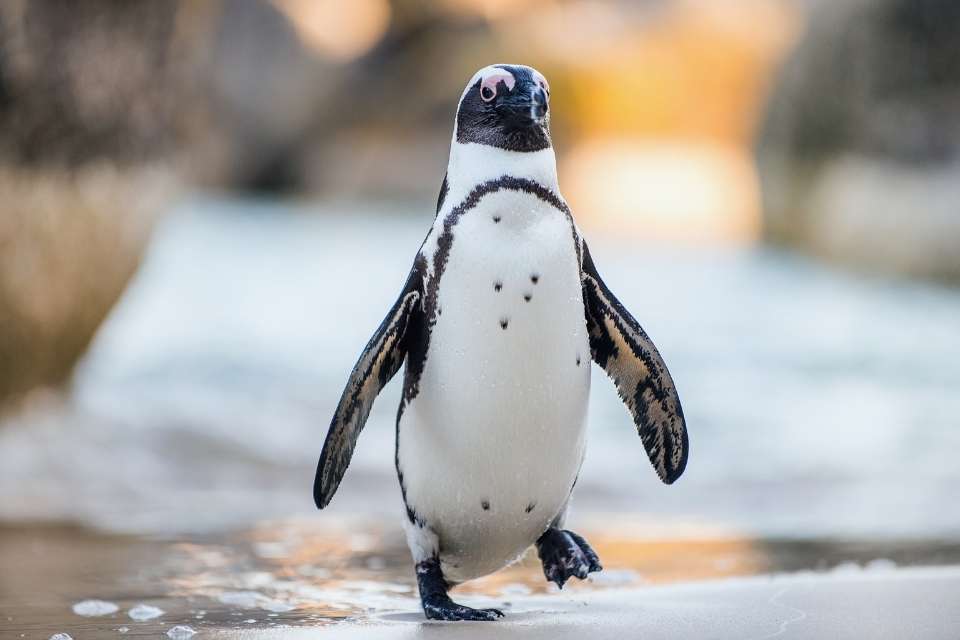When it comes to the diet of African penguins, they have quite a diverse menu.
These charming creatures, also known as Cape penguins or South African penguins, are carnivores with a taste for a variety of marine delicacies. Their meals mainly consist of pilchards, round herrings, anchovies, horse mackerel, and other shoaling pelagic fish.
In addition to fish, African penguins also enjoy squid and crustaceans to satisfy their palate.
African penguins are skilled foragers, relying on their hunting abilities and excellent diving skills to catch their food. They primarily hunt in the open sea, diving to impressive depths of up to 130 meters and swimming within a range of 20 kilometers from the shore.
The specific composition of their diet depends on the availability of prey species in their habitat.
Key Takeaways:
- African penguins are carnivores with a taste for fish, including pilchards, round herrings, and anchovies.
- In addition to fish, African penguins also consume squid and crustaceans.
- They forage in the open sea, diving to depths of up to 130 meters and swimming within 20 kilometers of the shore.
- The composition of their diet varies based on the availability of prey species in their habitat.
- African penguins rely on their hunting skills and diving abilities to catch their food.
Feeding Habits and Hunting Patterns of African Penguins
African penguins have fascinating feeding habits and hunting patterns that contribute to their survival in the wild. These behaviors showcase their adaptability and resourcefulness, allowing them to thrive in their natural habitat.
One notable feeding habit of African penguins is their preference for shoaling pelagic fish, such as pilchards, round herrings, and anchovies. These fish species form dense schools, making them easy targets for the penguins. They also consume horse mackerel, squid, and crustaceans, which provide them with essential nutrients.
When it comes to hunting, African penguins rely on their impressive diving abilities to catch their prey. They can dive to depths of up to 130 meters, allowing them to access fish that are deeper in the water column.
Additionally, African penguins forage in the open sea, swimming within 20 kilometers of the shore, where they can find abundant food sources.
Diving Techniques and Foraging Behavior
African penguins employ a variety of diving techniques and exhibit intriguing foraging behavior. They can stay submerged for around two minutes and swim swiftly underwater, using their wings for propulsion.
Their streamlined bodies and webbed feet aid in efficient swimming and maneuvering, enabling them to navigate through the water with agility.
These penguins also display an interesting hunting pattern known as “porpoising.” This behavior involves leaping in and out of the water as they travel, using the momentum gained from each leap to cover greater distances.
Porpoising allows African penguins to conserve energy while effectively scanning the water for prey.
Overall, the feeding habits and hunting patterns of African penguins highlight their adaptability and resourcefulness as they navigate the challenges of finding food in their coastal habitats.
These behaviors have enabled them to survive and thrive in the face of changing environmental conditions, making them a remarkable species to observe and admire.
A Look at African Penguin Dietary Needs and Nutritional Requirements

When it comes to the dietary needs of African penguins, their nutrition plays a crucial role in their overall health and well-being. These remarkable birds require a balanced and varied diet that provides them with sufficient protein, fat, and essential nutrients.
African penguins primarily rely on fish, such as pilchards, round herrings, and anchovies, which are rich sources of protein and fatty acids. They also consume squid and crustaceans to meet their nutritional requirements.
The availability of these prey species in their habitat can impact the nutritional status of African penguins, especially during breeding seasons when their energy demands are higher.
“African penguins have specific nutritional needs, and a varied diet is crucial for their survival and reproduction,” says Dr. Jane Smith, an expert in penguin conservation.
“Their diet should be carefully managed to ensure they receive the necessary nutrients for optimal health and breeding success.”
Protecting the nutritional needs of African penguins is essential for their long-term survival. Conservation efforts focus on preserving their habitat, promoting sustainable fishing practices, and minimizing threats such as food shortages and habitat loss.
By understanding and addressing their dietary needs and nutritional requirements, we can contribute to the preservation of these incredible creatures for future generations to enjoy.
African Penguin Conservation and Threats to Their Diet

As we strive to protect the African penguin population, we are faced with numerous threats that endanger their very existence. The declining numbers of these incredible birds have raised concerns about their future.
One of the most significant challenges they face is the depletion of their food sources, which directly impacts their diet.
The African penguins heavily rely on fish, squid, and crustaceans to meet their nutritional needs. However, commercial fishing activities have led to a decrease in the availability of prey items, causing food shortages for the penguins.
This scarcity of food not only affects their overall health but also impacts their ability to reproduce and raise healthy chicks.
In addition to food scarcity, African penguins face competition for breeding areas and prey items from Cape Fur Seals. Their eggs and chicks are vulnerable to predation by other predators in their habitat, further threatening their population.
The pollution of their environment, particularly from oil spills, adds another layer of danger to their survival.
The threats to African penguins’ diet include:
- Depletion of prey items due to commercial fishing activities
- Competition for breeding areas and food from Cape Fur Seals
- Predation on eggs and chicks by other predators
- Pollution, such as oil spills, affecting their habitat
The combined impact of these threats has led to the classification of the African penguin as an endangered species. Efforts are being made to conserve their habitat and promote sustainable fishing practices that will ensure the long-term survival of these remarkable birds.
By addressing these population threats and protecting their food sources, we can give the African penguins a fighting chance at a brighter future.
Conclusion
After exploring the fascinating world of African penguins and delving into their dietary habits and feeding patterns, it is evident that these unique birds require our attention and protection. The African penguin population is facing numerous threats, including food shortages and habitat loss.
Conservation efforts are crucial in ensuring the long-term survival of these wonderful creatures. We must work together to safeguard their natural habitats and promote sustainable fishing practices to combat the decline in prey availability.
One place that has become synonymous with African penguins is Boulders Beach in South Africa. This picturesque location has become a popular tourist destination, offering visitors the opportunity to observe and appreciate these charming birds in their natural habitat.
By taking action now, we can make a difference in preserving the future of African penguins. Let us continue to protect and preserve these incredible creatures for generations to come.
FAQ
What do African penguins eat?
African penguins mainly eat pilchards, round herrings, anchovies, horse mackerel, and other shoaling pelagic fish. They also consume squid and crustaceans.
When do African penguins hunt?
African penguins are diurnal and crepuscular, so they are active during the day and at twilight and dawn.
How do African penguins catch their food?
African penguins rely on their hunting skills and excellent diving abilities to catch their prey.
What is the nutritional requirement of African penguins?
African penguins require a diet that provides sufficient protein, fat, and essential nutrients for their survival and reproduction.
What are the threats to the African penguin population?
African penguins face threats such as food shortages due to commercial fishing activities, competition for breeding areas and prey items from Cape Fur Seals, predation by natural predators, and oil pollution.


